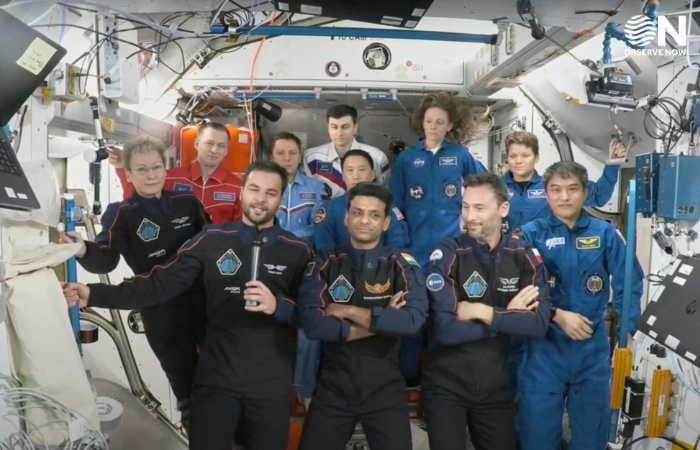Astronauts from India, Poland and Hungary Safely Splash Down After Axiom‑4 ISS Mission

Astronauts Shubhanshu Shukla (India), Sławosz Uznański‑Wiśniewski (Poland), Tibor Kapu (Hungary), and veteran American astronaut Peggy Whitson have safely returned to Earth following an 18‑day mission aboard the International Space Station. The crew docked aboard the SpaceX Crew Dragon capsule named Grace, which splashed down off the coast of Southern California after a dramatic descent through Earth’s atmosphere.
The mission, conducted by Axiom Space in partnership with SpaceX, marks a historic moment as it restores government-backed human spaceflight for India, Poland and Hungary—their first since the late 1970s. As pilot, Shubhanshu Shukla became the first astronaut representing the Indian Space Research Organisation to visit the ISS, building on the legacy of India’s space ambitions ahead of its planned Gaganyaan crewed mission in 2027. Meanwhile, Uznański‑Wiśniewski’s participation reflects Poland’s return to crewed space endeavors under ESA’s Ignis initiative, and Kapu became Hungary’s first government-sponsored astronaut.
During their stay, the crew carried out more than 60 microgravity experiments from 31 countries, advancing research in life sciences, materials, and technology. Whitson extended her own U.S. record to nearly 700 cumulative days in orbit while leading the mission as commander. Her presence lent seasoned authority and stability to this pioneering international flight.
The successful return signals the growing role of private entities like Axiom Space in facilitating government-sponsored crewed missions to the ISS, aligning with NASA’s broader goal of transitioning to private-sector-operated space stations by the end of the decade. As the capsule touched down, the crew was retrieved by recovery teams and taken ashore, following standard medical checks and debriefings.
This mission not only demonstrates the technical prowess of SpaceX’s Crew Dragon and Falcon 9 rockets but also highlights a new era of global collaboration. Smaller nations are now gaining access to space through private-public partnerships, expanding the frontier of human space exploration beyond traditional spacefaring powers.
The Axiom‑4 mission underscores the expanding democratization of orbital access, pioneering a future where public and private cooperation empowers diverse nations to contribute to humanity’s presence in space.
















